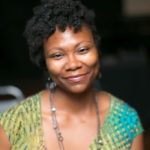We live in a time when our biases, perceptions and stereotypes, as well as their consequences are
immediately seen through social media and news outlets. This process makes us aware, but also evokes
a lot of emotion in many of us. It is easy to place blame and make judgements. The harder thing to
accept is that we each have biases that negatively affect us and our interactions with each other. There
is a ton of research on stereotypes and racism, and in the last few years, there has been more research
on the everyday instances of these interactions. One path that has developed is our understanding of a
concept called microaggressions.
Microaggressions
The term microaggression has been used to coin minor, unintentional instances when our biases are
evident is the concept of microaggressions (http://www.microaggressions.com/ ). These are instances
when someone unintentionally makes a derogatory statement based on race, gender and/or other
stereotypes. You can find some examples of this term here (https://www.buzzfeed.com/hnigatu/racial-
microagressions-you- hear-on- a-daily- basis?utm_term=.yv2MDYjBZ#.nrBoOqW3w) . While they are
minor in nature, they occur every day, and in most instances, when they occur we do not discuss them.
It is often awkward if the person realizes they have offended the other person, which leads to more
hesitation, even though it often stirs up negative emotion on the receiving person. This is especially true
if these instances are repeated. So, if it is difficult to discuss such minor errors, how much more difficult
is it to discuss more severe instances of hate and racism? This is where the real work comes in.
Challenge Your Beliefs
As a result of these difficulties many companies work to provide diversity training within their own
corporate settings (http://smallbusiness.chron.com/employers-responsibilities- diversity-workplace-
10417.html ). By providing on-going trainings it provides a hierarchy that allows employees to know who
they can go to if they feel an issue has come up as a result of stereotypes and/or racism. And, it is much
needed for any work environment to be productive and safe for all involved. But, for real change to
come, we as individuals have to also pursue an understanding of where our biases lie in our perceptions
and beliefs about ourselves and the world around us.
It is often the case that individuals place blame on our families of origin. While there is a lot of research
that indicates that is where these perceptions start, they have to be reinforced and encouraged for
them to remain. And, if that is the we can make a conscious decision to change such patterns. Such
discussions provide a great foundational framework for thematic work within the context of therapy. If
you are engaged in an individual therapy format, taking time to understand what biases you have,
where they originated from, and how they shape your views of the world can bring an understanding of
a number of issues. This would also depend on having a culturally aware therapist that is willing to
openly delve into these concerns with you (http://www.ncbi.nlm.nih.gov/pmc/articles/PMC2793275/).
Many clinicians work to engage in on-going diversity trainings, but their understanding of different
cultures and ability to work with such themes in therapy will vary. If this is a true emphasis area for you
and a primary reason for seeking treatment, you should talk with your therapist about this when
initiating services to make sure each of you are on the same page.
However, you can also begin this journey on your own even outside of the therapy room. One option
may be to start with an online questionnaire that helps you to consider what biases you have (e.g.,
http://www.tolerance.org/activity/test-yourself- hidden-bias ). This provides a confidential option to
allow you to see where your biases lie. Such results could also provide an avenue for exploring yourself
at a deeper level.
Another option would be to find ways to engage with cultures outside of our own. This would mean
sitting down to really think about the demographics of your inner circle and how you can expand it. This
could be as simple as joining an activity at a local cultural museum. For instance, in Oklahoma, we have
several museums that are dedicated to helping others gain a better understanding of the culture of
Native Americans. When I lived in Memphis, TN, I made it a point to regularly visit the Civil Rights
museum, which provides historical facts on the Civil Rights era and subsequent movements. If you do
some searching and find that your bias is in regards to certain types of mental illness, maybe attend a
national walk or run for NAMI. In most instances, there are also booths there with people who are
willing to share their stories to help with understanding these symptoms from a different perspective. If
your concern is in regards to changes in your state/community in relation to LGBTQ issues, you should
reach out to such groups to gain an understanding and/or read online. In Oklahoma, there are sites
dedicated to such pursuits (http://www.hrc.org/local-issues/oklahoma) as well as resource sites
(http://www.okeq.org/). Another more general outlet would be to become aware of diversity offerings
and festivals at universities that are close to you. These institutions seek to develop activities for their
students and the surrounding community and they are often free. Because of their push towards
learning and understanding, they are also often accompanied by academic talks and resources. Any of
these routes would help to provide differing opinions about these areas, while also checking the base of
facts that has been used to establish our own views. In my own life there have been times when the
facts I hold are wrong. By coming to this understanding, I am able to push towards a new path that
provides different views.
Entering Reflection
If you decide to seek out these conversations the goal would not be to argue your perspective, but
instead to put yourself in a place where you are open to hearing new ones. This step is not about you
accepting the new information. That is a process that happens over time. However, for this process to
work you would then need to take time to think through how they are similar or different from your
own in regards to thought patterns, upbringing, and views of the world. There are a number of sites
dedicated to this as well. One possible option would be a site provided by The Sisters of St. Frances of
Philadelphia (http://www.osfphila.org/justice_peace/diversity_questions) .
My Walk
Regardless of what avenue you choose, I hope that you choose one. In my own walk, as a Christian,
Divorced, Single Mother, and African-American I am faced with biases at every turn (or it feels that way
in my head at times, ha). I have still come to realize that I have a lot to learn about the cultures that
surround me and by working to seek an understanding it makes me more compassionate to the paths
others walk. To actively and regularly challenge my beliefs I attend diversity trainings that force me to
come face to face with my beliefs and possible reasons why I hold on to them. I also stay actively
engaged in a number of community projects that allow me to serve populations that are similar and
different than my own. In seeking new paths, I do find myself feeling uncomfortable at times, but it is a
level of discomfort that almost always brings about change and helps me to be more open to those
around me. When such experiences reveal significant areas of conflict, I seek out consultation from
trusted colleagues to process through it. I have come to understand that to grow, I have to be willing to
embrace the process and be open to change. I hope you will join me in such efforts.


 Tamara Reeves, Ph.D., grew up in Oklahoma City, OK, and graduated from high school from Douglass with hopes of becoming a psychologist. Dr. Reeves went on to complete her Bachelor of Arts degree at the University of Central Oklahoma in psychology and graduated Cum Laude. At UCO, Dr. Reeves applied for the Ronald McNair Scholar’s program, and was accepted into the first cohort at this institution. She completed two research projects within this program and began working for a federally funded clinical research trial during her senior year in college. In the fall of 2002, Dr. Reeves began her graduate work at the University of Memphis. She subsequently completed her master’s (May 2005) and doctoral degree (August 2008) within the clinical psychology program.
Dr. Reeves initially began her graduate work with an emphasis in child and family studies. While completing her pre-doctoral internship at the University of Texas Health Science Center at San Antonio, Dr. Reeves began working within two grant funded programs that helped develop clinical services for adults with schizophrenia and bipolar disorder. Following this year of training, Dr. Reeves moved back to Oklahoma and worked for three years within the Alcohol and Drug Abuse Prevention Office at the University of Central Oklahoma. At present, she works as a Licensed Clinical Psychologist and the owner of
Tamara Reeves, Ph.D., grew up in Oklahoma City, OK, and graduated from high school from Douglass with hopes of becoming a psychologist. Dr. Reeves went on to complete her Bachelor of Arts degree at the University of Central Oklahoma in psychology and graduated Cum Laude. At UCO, Dr. Reeves applied for the Ronald McNair Scholar’s program, and was accepted into the first cohort at this institution. She completed two research projects within this program and began working for a federally funded clinical research trial during her senior year in college. In the fall of 2002, Dr. Reeves began her graduate work at the University of Memphis. She subsequently completed her master’s (May 2005) and doctoral degree (August 2008) within the clinical psychology program.
Dr. Reeves initially began her graduate work with an emphasis in child and family studies. While completing her pre-doctoral internship at the University of Texas Health Science Center at San Antonio, Dr. Reeves began working within two grant funded programs that helped develop clinical services for adults with schizophrenia and bipolar disorder. Following this year of training, Dr. Reeves moved back to Oklahoma and worked for three years within the Alcohol and Drug Abuse Prevention Office at the University of Central Oklahoma. At present, she works as a Licensed Clinical Psychologist and the owner of 

















